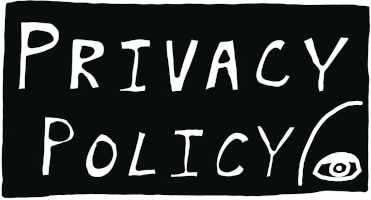To journalists, press releases do not sources make
Have you ever gone into a handmade boot shop? They often have the really wild, pricey handmade boots that are wearable works of art. Then there are the more regular, more affordable boots. Then there are the wallets and the belts and maybe the key holders, the low level leather goods that people get just so they can say they have something handmade by the famous boot guy.
Now I don't know, but I can't help but think that the wallets and the belts aren't the thing the bootmaker is really that excited about making. Or selling.
What he wants to do is the custom job. He wants to make the boot with a silhouette of the State of Texas in profile, with a VW bug in the heart of it. That's the fun stuff.
It's not just the extra money. It's the challenge.
It's not doing the same bloody ass thing every day. It's not life on autopilot.
Look: I don't know if this is how bootmakers think but it is how reporters think — with some caveats.
TL;dr A seasoned reporter is not excited about writing up press releases. Not any press releases. Not exclusive ones. Not timely ones. Not any of them.
Writing from a press release is like painting by numbers. Someone might see it and say that's real pretty, but no one is actually impressed. For the person doing it, they are going to paint by numbers enough times and eventually wonder if they can make up a picture on their own.
The time comes when it's time to get out there without a map.
So the thing about reporters is, they like to find secrets. Part of the work is documenting what is happening in the world. Part of it is explaining what is happening in the world.
The first is necessary. The second can be gratifying, but the third thing is what makes it really satisfying. The third thing is finding important secrets that someone with some power doesn't want you to know. Whether that is inappropriate use of funds or a cover-up or even just a product that never launched because the CEO's ego got out of hand, it's finding secrets that makes a journalist feel like they have gotten somewhere.
People who help reporters to find information that someone does not want them to know, those people are sources. In fact it doesnt' even have to be so controversial. They can even just help you find public information that's not gotten noticed outside the source's little subculture. If it's broadly interesting, even that can be really great.
The world of reporting that I know best is the tech reporting world. Here's the process I went through as a reporter. I started without any kind of training. I just sort of fell into it. I didn't even know that there was a PR industry. Before long I started to get all these different emails about things that were happening. At first I thought it was really interesting, but before long it started to get frustrating.
So much of it had nothing to do with what I wanted to write about. So that was the first stage.
Sometimes when I got a truly ridiculous email I would reply by sending back a GIF of a dog balancing a half of a lemon on his head.
Once I was in it a little bit longer I started fighting to get exclusives. Since most reporters in tech reporting are pretty young and don't last in the industry that long, I think this cateogry of reporter persists.
Sadly, even a lot of editors seem to think that somehow getting exclusives is emblematic of some kind of competitive edge. I don't actually see why. I'm not sure readers actually notice and I really don't think they come to associate exclusives with the outlet. To a certain degree, exclusives should be contraindicative, because it puts the outlet temporarily in the thrall of the reporter.
Case in point: one of the most widely discussed exclusives that I can remember was when Snap revealed their glasses exclusively with the Wall Street Journal, complete with an artful photo of the founder wearing them. Everything about it comes off like sponcon, even though it's not.
Once you're in the business long enough, it becomes obvious that communications pros just sort of rotate exclusives around as a way to keep a variety of reporters a little bit on a hook. It also makes it look good for their companies to appear in a variety of different outlets.
Some reporters do all their work straight from their inbox. They sort through the daily "pitches" that come and choose one or two among them to pursue. It's not so much reporting as curating other people's blog posts, with some light rewrites.
And it leads to bad habits. Everyone wants to tell you when they start a project but no one wants to tell you when they bag. For example, I wrote several stories about this company Stream, from the early ICO days. However, its post announcing that the team was scared of securities regulators was up for months before I saw it, because no one sent it to me directly.
There is a level on which I wish everyone would embrace Balaji Srinivasan's exhortation to become their own media brands. Publish all your own announcements at the same time for everyone, on your blogs.
Leave reporters alone to discern the trends or follow up to ask questions about what gets left unsaid in those stories. Let them spend time finding out what's not working or what they aren't telling consumers (with modern tech, there's always a downside that's not listed anywhere).
Anyway, we're at the point where people come to me with press releases like I should be excited about them. That's not where I'm at anymore. If you can't wait to tell the world about it, I'm just doing public relations. If it's really relevant news you should be able to post it on Pastebin and it would still make a splash. I'm not jazzed to do anyone's PR.
Actual sources, the people a reporter owes a debt to are the people who tell him stuff on the side. The ones who say, "Now you didn't hear this from me..." Or "You might ask X about Y..." or "Check out what's going on in this Discord channel." THAT is real source work. That is being a source of information that wasn't inevitably going to get spoonfed to the reporter anyway. That's the beginning of a real story, one where there is conflict, where there is one side pitted against the other and some real legwork needs to be done to sort out what the truth is, what the right way to look at something is.
Obviously it's controversial, but if what you know is in the public interest, then doing so puts you on the side of the people.
That's the customized boot with the silhouette of Texas and the VW bug and that boot... that boot, my friends, it kicks ass.
—Brady Dale
February 28, 2021




